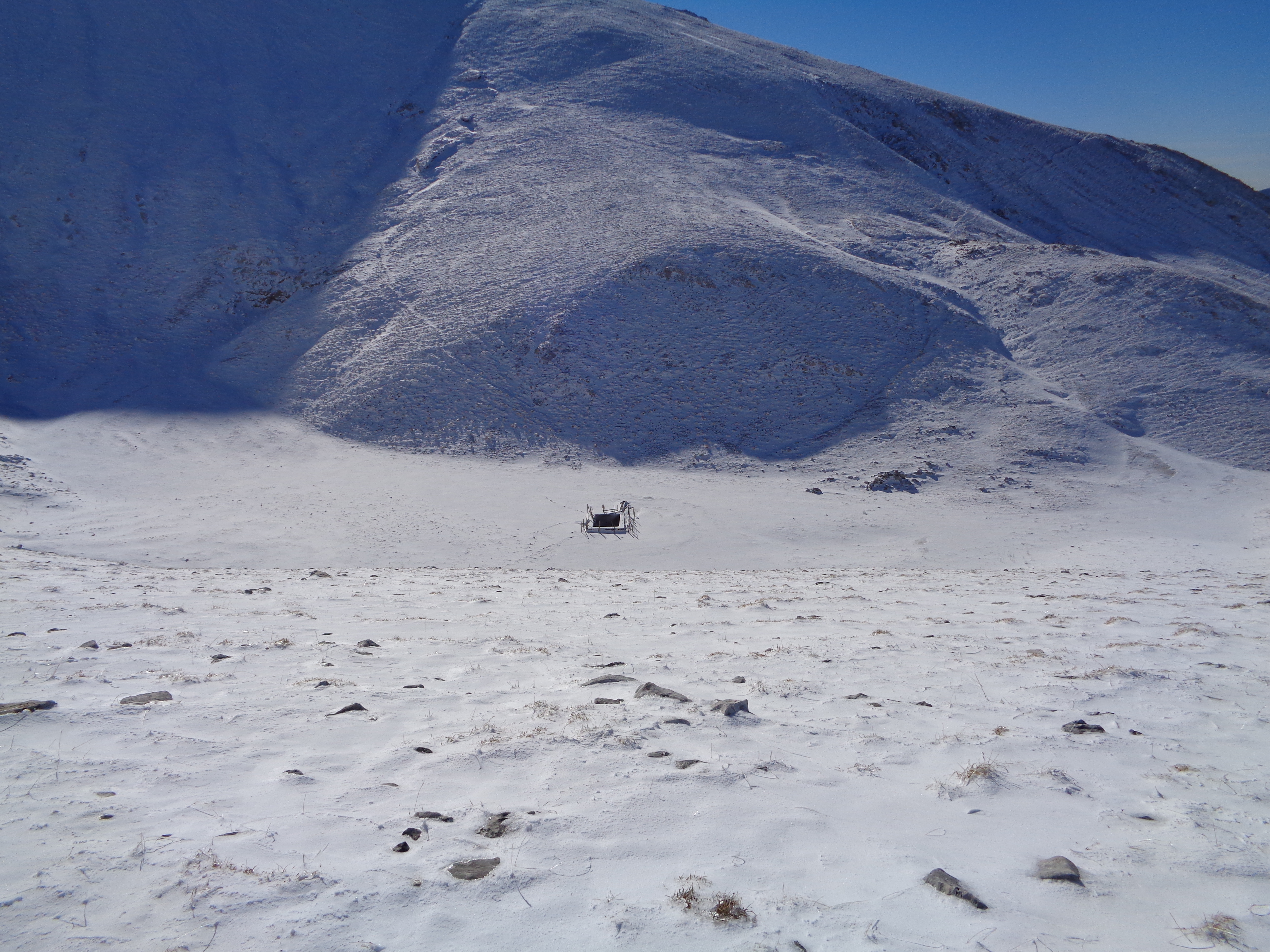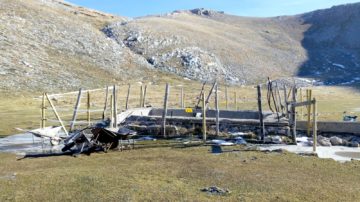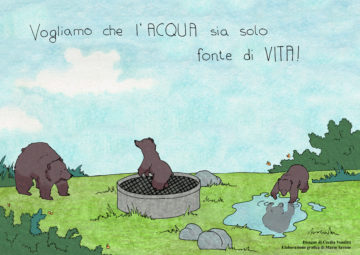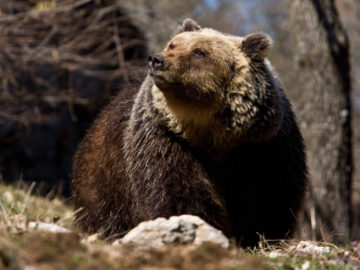Located in the buffer zone of the Abruzzo, Lazio and Molise National Park, the water tank, which has claimed the lives of five critically endangered bears in two separate incidents, has now been partially filled in. Work continues to identify other potentially dangerous tanks and wells.

A water tank that claimed the lives of three endangered Marsican brown bears in the Central Apennines of Italy in November last year – and two more bears in 2010 – has finally been made safe. The tank, located in a remote area of the buffer zone of the Abruzzo, Lazio and Molise National Park, was partially filled with soil and stones last December, creating a ramp which will allow bears to climb in and out. The tank will still be accessible to livestock looking for water.

In mid-November Rewilding Europe and local partner Salviamo l’Orso were deeply shocked and dismayed by the deaths of three bears – a mother and two cubs – in the water tank, which is 3.5 metres deep. The animals were found drowned after they fell into the tank and were unable to scramble up its steep-sided walls (scratches on the sides of the tank pay testament to their horrific struggle). After the incident a solar-powered electric fence was placed around the tank, although heavy snow and long periods shadow rendered this short-term solution only partially effective.
The female bear that died in 2018 was believed to be around 10 years old, while the cubs, a male and a female, were just a year old. Considering the critically endangered status of the Marsican brown bear, the loss is severe. The sub-species of Eurasian brown bear is only found in the mountains of central Italy, with the current population estimated to be around 50.

After a mother and cub drowned in the same tank in 2010, a metal fence was constructed around it. However, this was then vandalised by shepherds who wanted their livestock to have unimpeded access to drinking water.
“It is deeply shameful that five bears have died in this tank in eight years,” says Rewilding Apennines team leader Mario Cipollone. “This is an area where these animals should be thriving. Instead, because of human negligence, an estimated 10% of the total Marsican bear population has died. These incidents show that while the bears are physically strong, they are fragile animals too – they desperately need our help to survive.”
The secured water tank is only one of many potentially dangerous tanks, pits and wells in the area. Salviamo l’Orso and the Rewilding Apennines team have identified five more water tanks in the territory between Villalago and Ortona dei Marsi, and hired a local blacksmith to close them with metal grids. They have also inspected two other circular tanks on the mountains of Ovindoli.
“The securing of all these tanks is a gruelling challenge,” says Cipollone. “But we hope to succeed with the necessary determination and sense of urgency that has always characterised our efforts to save the Marsican brown bear. Unfortunately our economic resources will never be enough, so we appeal to the generosity of our supporters.”

“I think last year’s incident shows the urgent need for better communications between all the parties repsonsible for bear conservation in the Central Apennines,” continues the Rewilding Apennines team leader. “We must all work harder, together, to make sure this kind of tragedy is never repeated.”
While the remaining Marsican brown bears of the Central Apennines are relatively safe inside the area’s national parks, outside park boundaries they are at risk from poaching, poisoning and traffic collisions. Bear-related conservation work, which focuses on protected areas, has so far ignored the connections between them. The Rewilding Apennines team is now focusing its efforts on these corridors, involving local communities, mitigating human-bear conflict, and giving people economic incentives to protect bears.
